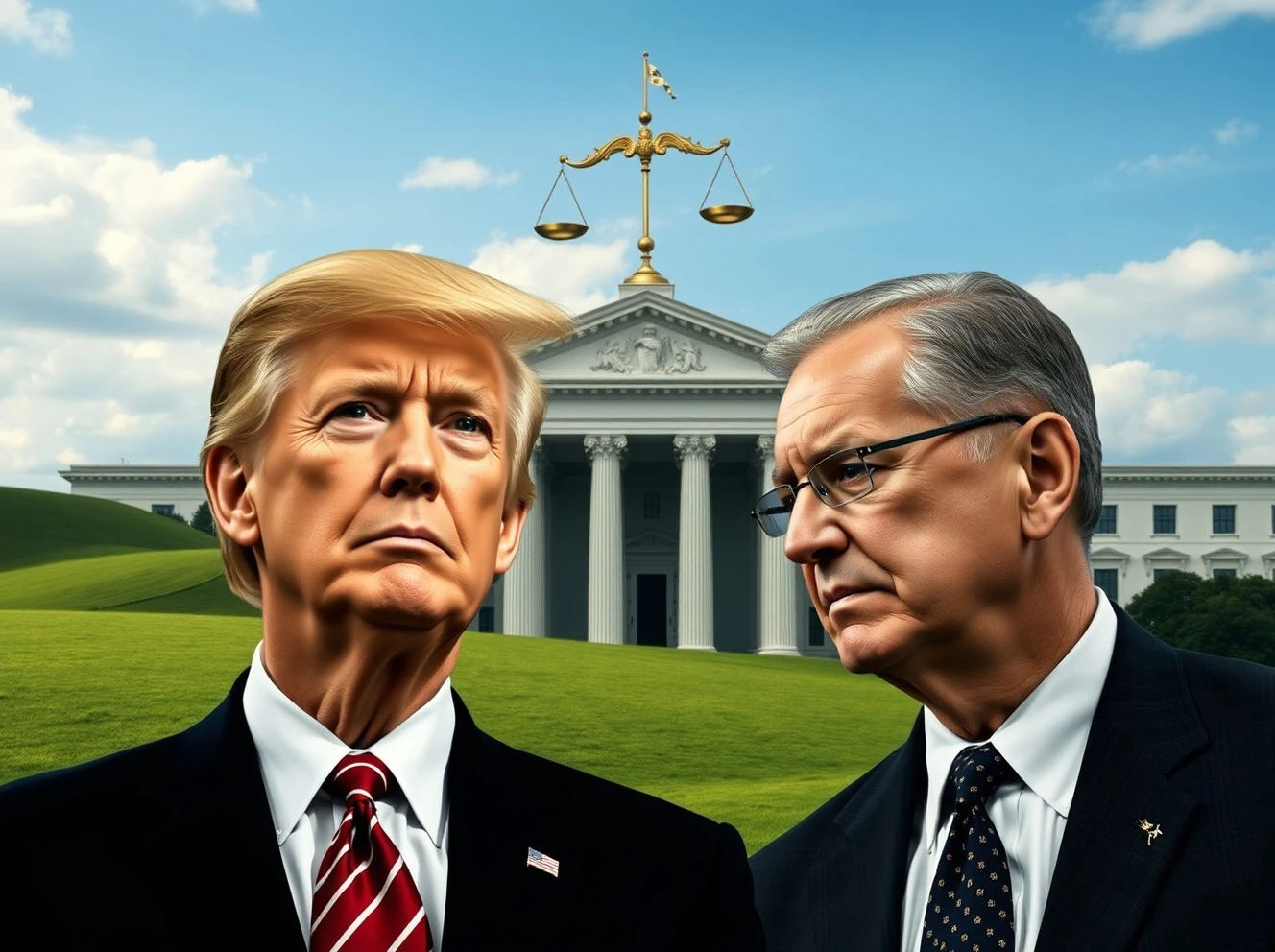The independence of the Federal Reserve is a cornerstone of the U.S. financial system. This crucial autonomy often sparks questions about executive power. Specifically, people wonder: Can a President fire a **Federal Reserve governor**? This question touches upon the delicate balance of authority. Understanding this relationship is vital for grasping economic governance. It highlights the unique structure designed to safeguard monetary policy from political influence. This article will explore the legal precedents and historical context surrounding this significant debate.
The Unwavering Independence of a Federal Reserve Governor
The Federal Reserve operates as the central bank of the United States. Its primary role involves guiding monetary policy. These decisions impact the nation’s economy significantly. Therefore, the Fed’s independence is paramount. This autonomy shields it from short-term political pressures. The ultimate goal is long-term economic stability and growth. The Fed’s structure ensures it can pursue these objectives without undue influence.
The Federal Reserve System includes a Board of Governors. This Board consists of seven members. Each **Federal Reserve governor** serves a long, 14-year term. These terms are carefully staggered. This design promotes continuity in policy. It also significantly reduces direct political influence. Furthermore, a chair and vice-chair lead the Board. They are also governors, appointed for four-year terms in those leadership roles. Their combined expertise guides the nation’s financial future.
The Appointment Process for a Federal Reserve Governor
The selection of a **Federal Reserve governor** follows a rigorous process. First, the President of the United States nominates individuals for these positions. These nominations are not taken lightly. The President typically seeks candidates with extensive economic and financial expertise. This ensures high-level competence on the Board.
Next, the Senate must confirm these presidential nominations. This confirmation process involves thorough vetting. Senators review the nominee’s qualifications and past records. They also question them on their economic views. Once confirmed, a **Federal Reserve governor** officially begins their substantial 14-year term. This lengthy term provides considerable insulation from political shifts. It allows them to focus on their mandate without immediate electoral concerns.
Understanding “For Cause” Removal: A Legal Barrier for a Federal Reserve Governor
The power to remove a **Federal Reserve governor** is severely limited. This limitation stems from a critical legal principle: the “for cause” standard. The Supreme Court established this standard. It applies to officials serving in independent agencies. The landmark case *Humphrey’s Executor v. United States* (1935) solidified this precedent. This ruling significantly curtailed presidential removal powers.
Under this standard, a President cannot remove an official simply due to policy disagreements. Instead, there must be specific, justifiable reasons. These reasons typically include:
- Inefficiency: A clear lack of ability to perform duties.
- Neglect of duty: Failing to carry out assigned responsibilities.
- Malfeasance in office: Engaging in wrongful or illegal conduct.
This legal barrier protects the independence of each **Federal Reserve governor**. It prevents arbitrary dismissals. Therefore, the Fed can make tough, often unpopular decisions. These decisions are necessary for long-term economic health. The “for cause” standard reinforces the Fed’s ability to act impartially.
Historical Context and the Absence of a Federal Reserve Governor Firing
Historically, no U.S. president has successfully fired a **Federal Reserve governor**. This fact underscores the strength of the legal protections in place. It also reflects a long-standing respect for the Fed’s institutional independence. While disagreements between presidents and Fed leaders are not uncommon, they have never resulted in a successful dismissal based on policy differences.
Presidents and the Federal Reserve often face different incentives. Presidents operate on shorter political cycles. They may prioritize immediate economic gains. Conversely, the Federal Reserve focuses on sustained, long-term stability. This difference can lead to tension. However, the legal framework has consistently prevented direct executive interference in personnel decisions. This consistency has maintained the Fed’s crucial autonomy.
Why Federal Reserve Governor Independence Matters for Economic Stability
The independence of a **Federal Reserve governor** is highly valued for several reasons. Primarily, it prevents short-term political manipulation of monetary policy. Monetary policy requires a long-term perspective. Political leaders often face election cycles. They might favor policies that provide an immediate economic boost. Such policies, however, could harm long-term stability through inflation or asset bubbles.
An independent **Federal Reserve governor** can resist these pressures. They focus on the Fed’s dual mandate: achieving maximum employment and price stability. This unwavering focus helps maintain public and market trust. It also safeguards the nation’s financial health. Consequently, the economy benefits from consistent, expert-driven monetary policy decisions.
Potential Repercussions of a Presidential Firing Attempt on a Federal Reserve Governor
An attempt by a president to fire a **Federal Reserve governor** would face immense legal and political hurdles. Such an action would almost certainly lead to extensive litigation. The courts would likely uphold the “for cause” standard. This would result in a significant legal defeat for the executive branch.
Furthermore, such an attempt would trigger severe economic and political instability. Financial markets would react negatively and swiftly. Investors rely on the Fed’s predictability and independence. Political interference would erode this critical trust. This could lead to:
- Market Volatility: Sudden and sharp price swings in stocks and bonds.
- Loss of Investor Confidence: Reduced willingness to invest in the U.S. economy.
- Economic Uncertainty: Businesses delaying investments and hiring.
- Damage to Global Standing: Undermining the U.S. dollar’s role and international financial leadership.
Therefore, the potential fallout from such an action acts as a strong deterrent. It reinforces the practical limits on presidential power over the Fed.
Congressional Oversight and the Federal Reserve Governor’s Accountability
Congress also plays a significant role in overseeing the Federal Reserve. It created the institution through the Federal Reserve Act of 1913. Congress possesses the power to modify the Fed’s structure and mandate. However, Congress generally supports the Fed’s independence. This support is crucial for its effectiveness.
The Fed remains accountable to Congress. The Chair of the Federal Reserve testifies regularly before congressional committees. This provides transparency. It also allows lawmakers to question the Fed’s policies and decisions. This oversight ensures accountability without compromising the independence of a **Federal Reserve governor**. It maintains the necessary checks and balances within the U.S. government structure.
In conclusion, the ability of a president to fire a **Federal Reserve governor** is highly restricted. The “for cause” standard, established by the Supreme Court, stands as a robust legal barrier. This protection is not merely a legal technicality. It is vital for the effective functioning of the U.S. economy. It underpins the Federal Reserve’s crucial role in maintaining financial stability. The independence of the central bank remains paramount for sound monetary policy and economic trust.
Frequently Asked Questions (FAQs)
1. What is the term length for a Federal Reserve governor?
Each **Federal Reserve governor** serves a 14-year term. These terms are staggered to ensure continuity and reduce the influence of any single presidential administration.
2. What does “for cause” mean in the context of firing a Federal Reserve governor?
“For cause” means a president can only remove a **Federal Reserve governor** for specific, legally defined reasons. These reasons include inefficiency, neglect of duty, or malfeasance in office, not for policy disagreements.
3. Has any U.S. president ever fired a Federal Reserve governor?
No, no U.S. president has ever successfully fired a **Federal Reserve governor**. The legal protections for their independence have consistently held.
4. Why is the independence of the Federal Reserve important?
The Federal Reserve’s independence is crucial because it allows the central bank to make monetary policy decisions based on long-term economic stability, free from short-term political pressures and electoral cycles.
5. Who appoints a Federal Reserve governor?
A **Federal Reserve governor** is nominated by the President of the United States and must be confirmed by the Senate.
6. What is the primary mandate of the Federal Reserve?
The Federal Reserve’s primary mandate is to achieve maximum employment and price stability within the U.S. economy.







